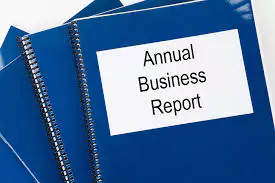 A business report is an important document for any enterprise. In order to make effective decisions, companies need accurate and concise information about their current situation, and a business report is the form in which it is usually provided. A business report is often about the output of a group of workers, and writing it requires careful planning and research in order to support some specific organizational objectives or decision making.
A business report is an important document for any enterprise. In order to make effective decisions, companies need accurate and concise information about their current situation, and a business report is the form in which it is usually provided. A business report is often about the output of a group of workers, and writing it requires careful planning and research in order to support some specific organizational objectives or decision making.
Steps for Writing a Business Report
- Determine the purpose and the audience of your report. The purpose of your report should be stated clearly and specifically, because this is the direction for your further writing. You should also consider the fact that the nature and the amount of information given in the report differ, depending on the audience to which it will be directed.
- Gather all available supporting information on the purpose of your report—factual data, research, and so on. In order to make your report reliable, organize it properly and analyze it.
- Write an introduction. Its main goal is to set up, in a couple of sentences, the upcoming content of a report. Give some brief background information here; define the problem or topic and its relevance. Also, state the purpose you have determined in Step 1. Finally, you can give an overview of your report’s structure.
- Introduce your key findings. One of the best ways to do it is to organize them in a bullet list, though you can also display it graphically. Here you must present a factual outline and give your interpretation of it. Specify the most significant findings; emphasize any unexpected issues discovered during the research process that should be considered.
- The next step is to write conclusions. This section summarizes your key findings, introduces your opinion on the topic, and answers the questions raised by the purpose.
- In the recommendations section, you should provide concrete suggestions on the report findings. This is a more subjective, but at the same time, one of the most important parts of the report. Here you must specify what needs to be done, by whom, how, when, and where. Explain why you think your ideas on solving a certain problem will work.
- Compose a back matter section. Usually, it contains some technical information and references.
Topic Selection
Most commonly, a business report is prepared to solve a problem a company is facing. Therefore, a topic (or a purpose) of a report is a resolution of a certain issue. For example, you can be asked to write a report to:
- analyze possible accounting problems a company may encounter and offer possible solutions to overcoming them
- overview possible business threats and benefits for your company
- assess financial pros and cons of offering a new kind of service to customers and offer recommendations
- observe all possible dimensions associated with a certain problem
Key Points to Consider
- The writing style of a business report should be brief and to the point. Business managers usually don’t have time to deal with paragraphs of information that are not essential—so the more concise and precise your style is, the more useful your report becomes.
- A business report can be prepared as plain text, a graph, or a table, depending on the company’s needs and requirements.
- Basically, business reports adhere to the following structure: 1) background 2) findings 3) discussion 4) conclusion 5) recommendations. However, in businesses which often experience time constraints, another structure is valued: 1) conclusions 2) recommendations 3) introduction 4) findings.
- Accuracy is one of the significant features of writing a business report. This includes the accuracy of presented information and accuracy of writing. Therefore, it is crucial to make sure that all facts in the report are correct and that it is free from grammatical, punctuation, and other errors.
- A business report must be objective and free from prejudice. When writing a report, make a distinction between facts and opinions and use an impersonal style.
Do and Don’t
Do
|
Don’t
|
Common Mistakes When Writing a Business Report
– Being too emotional. Using such words, as “enormous,” “incredible,” “guaranteed,” and so on are hardly admissible in business writing.
– Forgetting that a business report should be impersonal. Therefore, using personal pronouns and including personal opinions (except in the recommendations section, where you must come up with your suggestions on the topic) are unwarranted.
– Including judgments unsupported with evidence and unverified facts.
– Not taking your audience into consideration. The nature of information presented in a business report may vary, depending on whether you write it for a board of directors, or for your department head.
Follow us on Reddit for more insights and updates.



Comments (0)
Welcome to A*Help comments!
We’re all about debate and discussion at A*Help.
We value the diverse opinions of users, so you may find points of view that you don’t agree with. And that’s cool. However, there are certain things we’re not OK with: attempts to manipulate our data in any way, for example, or the posting of discriminative, offensive, hateful, or disparaging material.